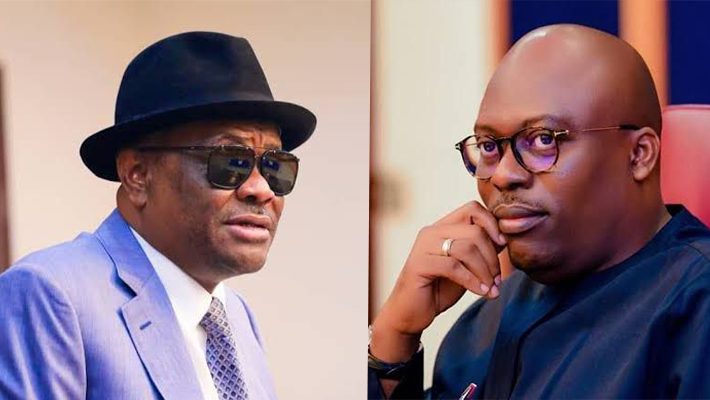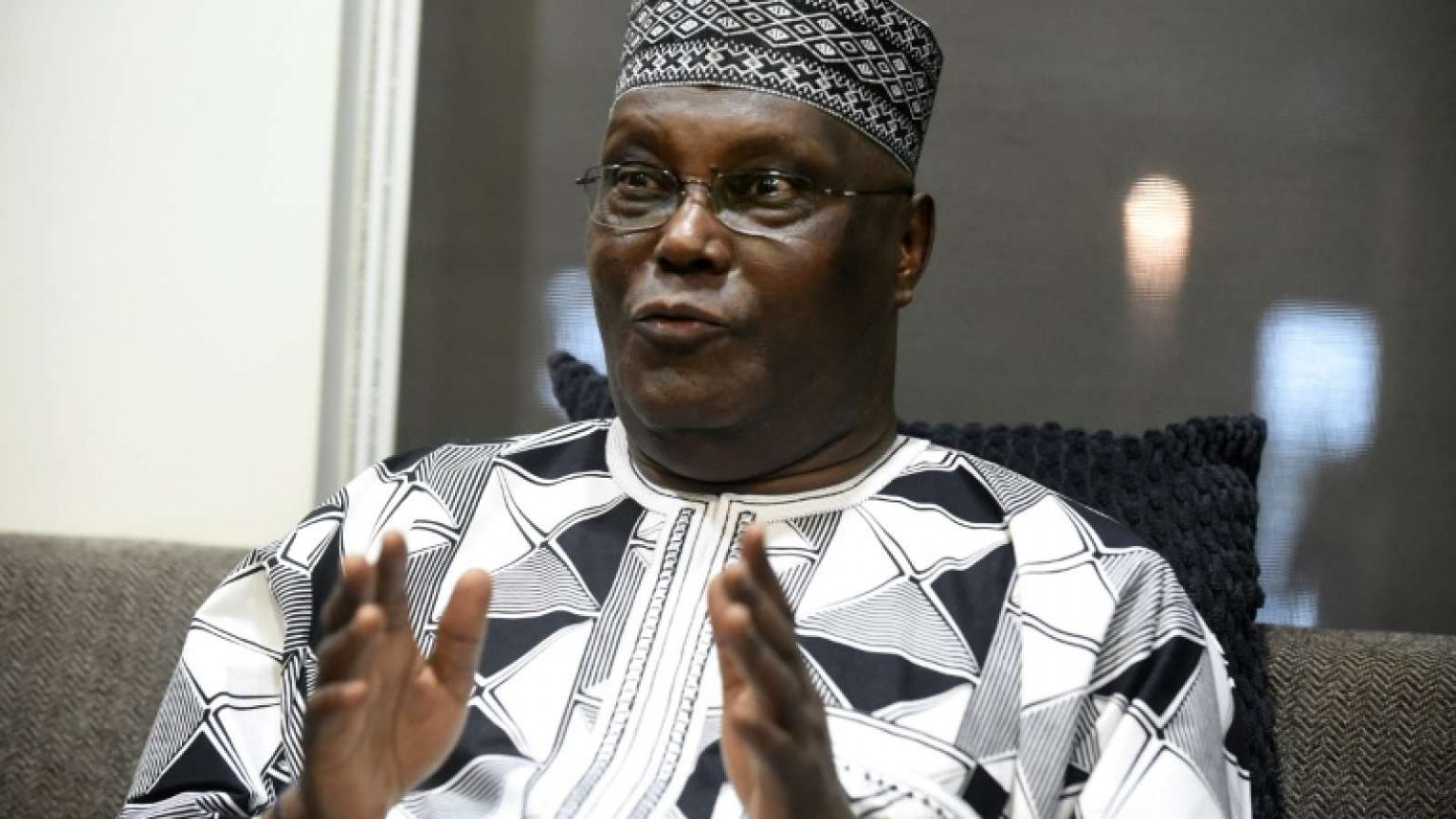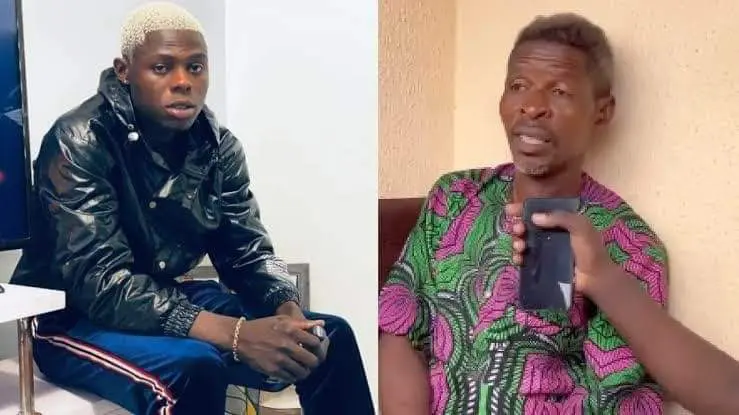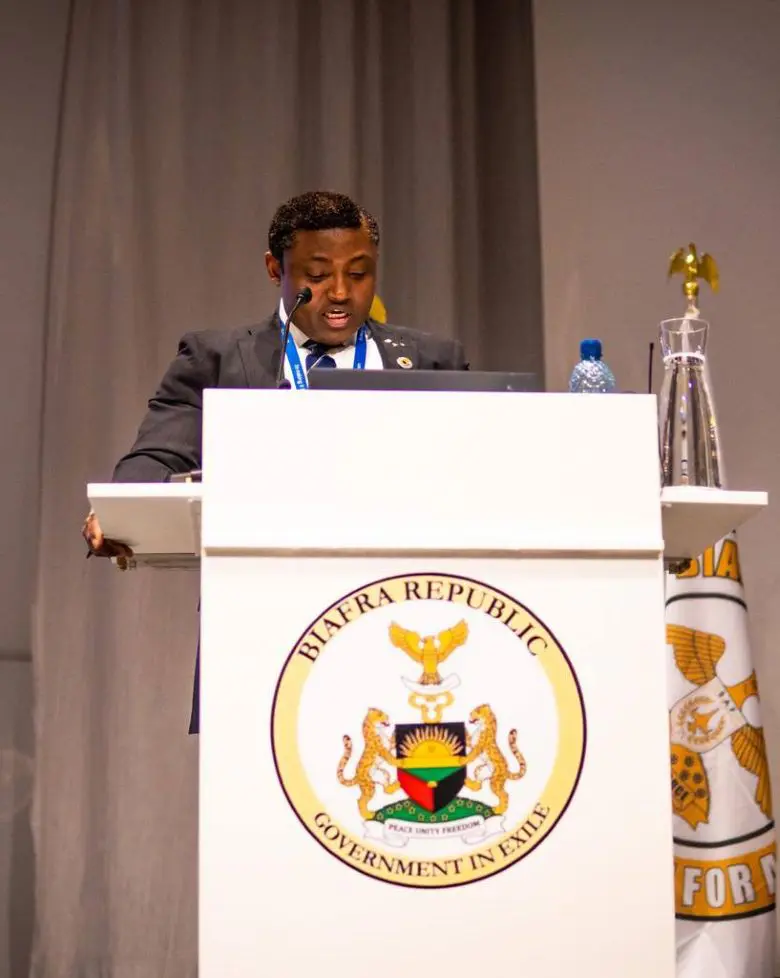
It looks like Rivers State’s political situation is far from resolved.
After meeting behind closed doors at the presidential villa on Monday night, the warring parties signed an accord, signaling the beginning of the end of violence.
Following the discussion, Governor Siminalayi Fubara made his commitment to maintaining calm in the state known during his first official outing.
He said: “There is no price that will be too big to pay to ensure that peace prevails.”
There are questions, though, over whether Fubara and former governor Peter Odili truly signed the eight-point resolution, which is thought to have strongly favored the immediate past governor, Nyesom Wike, the governor.
Before the most recent intervention by the president, Zingtie writes that tension and worry were high in Rivers due to the power struggle that has reached an extreme level over the past two months.
Wike has refuted claims that he requested a certain portion of Rivers’ revenue during the crisis.
The State House of Assembly has also attempted to remove the governor from office.
Wike accused Fubara of masterminding the attack, which included bombing the Assembly complex.
Subsequently, the state administration ordered the demolition of the House of Assembly complex in order to make renovations.
Additionally, twenty-seven State House of Assembly members who supported Wike switched allegiance from the Peoples Democratic Party (PDP) to the All Progressives Congress (APC) in an attempt to impeach the governor.
The lawmakers said that the main cause of their defection to the APC was internal PDP strife.
However, with the support of a High Court ruling that granted legitimacy to the divided House of Assembly members who supported him, Fubara went to the government house to present the 2024 budget proposal to the four legislators led by Rt. Hon. Edison Ehie.
The governor has since signed the budget proposal into law when it was later accepted.
During this time, a wave of resignations from Fubara’s cabinet members also occurred. They were said to be people who agreed with Wike’s viewpoint.
As the crisis worsened, Zingtie announced that seven commissioners submitted their resignations.
Nonetheless, it was thought that the Monday meeting, which was attended by Fubara, his deputy, Mrs. Ngozi Odu, former State governors Peter Odili and Nyesome Wike, as well as other stakeholders, had created opportunities for reconciliation.
The meeting was reportedly attended by the president’s chief of staff, Femi Gbajabiamila, vice president Kashim Shettima, and national security adviser Nuhu Ribadu.
According to information obtained by DAILY POST, Wike may have taken over the state’s political apparatus as a result of the resolution approved during the meeting, which has not gone over well with Fubara’s group.
Governor Fubara was instructed to re-present the 2024 appropriations bill, which he had previously presented to the four-member state House of Assembly to the full House, in accordance with the eight-point resolution signed at the conclusion of the meeting.
Additionally, Tinubu mandated the immediate withdrawal of all legal actions brought by Fubara and his group concerning the political unrest in the State.
It read: “All matters instituted in the courts by the Governor of Rivers State, Sir Fubara, and his team, in respect of the political crisis in Rivers State, shall be withdrawn immediately.
“All impeachment proceedings initiated against the Governor of Rivers State by the Rivers State House of Assembly should be dropped immediately.
“The leadership of the Rivers State House of Assembly as led by the Rt. Hon. Martin Amaewhule shall be recognised alongside the 27 members who resigned from the PDP.
“The remunerations and benefits of all members of the Rivers State House of Assembly and their staff must be reinstated immediately and the Governor of Rivers State shall henceforth not interfere with the full funding of the Rivers State House of Assembly.
“The Rivers State House of Assembly shall choose where they want to sit and conduct their legislative business without interference and/or hindrance from the executive arm of government.
“The Governor of Rivers State, Sir Fubara, shall re-present the state budget to a properly constituted Rivers State House of Assembly.
“The names of all commissioners in the Rivers State Executive Council who resigned their appointments because of the political crisis in the State should be resubmitted to the House of Assembly for approval.
“There should not be a caretaker committee for the local governments in Rivers State. The dissolution of the Local Government administration is null and void and shall not be recognised.”
The PDP’s insistence that the Independent National Electoral Commission, or INEC, set a date for new elections to fill the 25 vacancies in the Rivers State House of Assembly is a sign that things are still not right.
The PDP stated in a statement read by its acting National Chairman, Umar Iliya Damagum, in an apparent rejection of the truce mediated by President Tinubu said: “Our Party insists that having now vacated and lost their seats, the only option available for the former lawmakers, if they wish to return to the House of Assembly, is to seek fresh nomination and re-election on the platform of any political party of their choice in line with the provisions of the Constitution of the Federal Republic of Nigeria, 1999 (as amended) and the Electoral Act, 2022.
“The 25 former Rivers lawmakers freely and without any cause vacated their seats, being fully aware of the consequences of defection from the Party upon which they were elected into the Rivers State House of Assembly without the conditions stipulated by the 1999 Constitution.
“For the avoidance of doubt, there is no division in the PDP at the national or any other level for that matter to justify the defection of the 25 former members of the Rivers State House of Assembly from the Party. They therefore vacated their seats for reasons best known to them and cannot return to the House of Assembly without passing through a fresh electoral process in accordance with the provisions of the 1999 Constitution (as amended) and the Electoral Act, 2022.
“Moreover, the Speaker of the Rivers State House of Assembly Rt. Hon (Barr) Ehie O. Edison DSSRS officially declared the seat of the defected now former members vacant in line with Section 109 (1)(g) of the 1999 Constitution (as amended). The Rivers State House of Assembly, having become Functus Officio on the matter, cannot re-admit the former lawmakers unless through the channel of a fresh election.
“Our Party therefore counsels the former members of the Rivers State House of Assembly not to be deceived by anybody giving them the false hope and impracticable assurances in Abuja that they can return to the Rivers State House of Assembly without a fresh election or that the Independent National Electoral Commission (INEC) can be stopped from conducting fresh election into the 25 Rivers State Constituencies where vacancies have occurred by reason of their defection.
“The national leadership of the PDP charges all members of our great Party in Rivers State to remain united and resolute in the defence of Constitutional democracy and Rule of Law in Rivers State.”
In a similar vein, Ijaw national leader Chief Edwin Clark criticized the resolutions in a response to a Tuesday interview with journalists.
He stated that the resolution’s goal was to transfer the state’s political leadership to the current Federal Capital Territory, or FCT, Minister.
He claimed that it was clear from the wording of the alleged settlement that Tinubu had used his mediation position to express his thanks to the minister of the Federal Capital Territory for “delivering” Rivers state to him in the past presidential election.
“We will resist any attempt subtle, subterranean, covert, overt, to make an elected Ijaw son, Siminialayi Fubara, the Governor of Rivers State, a servant, a stooge to Nyesome Wike, who had boasted that any attempt by the Governor to touch his so-called ‘Wike’s structure’, with the connivance and support of President Bola Tinubu, will be resisted by us.
“Like I said, we will go to court to resist this oppressive action using all available constitutional and legal means. It is on this note I wish to appeal to the youths who are aggrieved, to remain calm, as we will use legal means to dethrone this hydra-headed monster, called oppression”.
Elder statesman and attorney Robert Clarke, SAN, concurred, stating that the President lacks the constitutional authority to intervene in the Rivers State dispute and the power struggle between Fubara and Wike.
In an interview with Arise News, Clarke revealed this, claiming that the concept of independent candidacies in elections will resolve most of Nigeria’s political problems.
“The constitutional role of the President in all this fracas – there should have been none. Because we were not expecting it, none has been provided for.
“The only time, the only constitution that allows the Federal government to put its mouth in a local thing, was during the first republic when a declaration of emergency was declared in the west.
“The president has no power; he knows that. The best legal brain cannot help him. You can’t bring Robert Clarke to come and change the law to enable the president to come and intervene. Under what constitutional provisions? So, the law by itself as of today did not provide (a constitutional right for Tinubu to intervene in State matters.”
Shehu Sani, a former federal lawmaker concurs that the crisis is far from resolved.
According to Sani, a former senator from Kaduna Central, the peace resolution is opposed to the governor of Rivers State.
The peace agreement was compared by him as taking the knife out of Fubara’s neck and putting it behind his back.
The agreement, according to the former lawmaker, would merely buy time for another round of fighting.
“I have now read the Rivers agreement. The accord will remove the knife from the neck of Sim and set it behind his back.
“The accord will bury the hatchets with leaves. The accord outwardly sells peace but internally buys time for another round of war.
“However, It can be better if the dialogue is periodically assessed and improved upon,” Sani wrote on his X handle.
In response to the news, Kenneth Ibuchukwu Nwodo—a former Special Assistant to former Enugu State governor Ifeanyi Ugwuanyi—commented to Zingtie, stating that the peace agreement can be interpreted as a promotion of godfatherism in Nigerian politics.
The resolution, according to Nwodo, is unacceptable and will not allow the country to progress under godfatherism.
He said, “This is just a matter of taking a case of a man who believes in one wife, one husband to somebody who believes in a polygamous family. You and I know the kind of judgement he would give.
“This kind of peace accord is just an encouragement of godfatherism in Nigerian politics, which is not acceptable to some of us.
“If we continue with godfatherism in politics, I wonder when the nation will grow; the nation can’t grow. And because the man at the centre believes in such a system, I think that’s why such a resolution can be upheld.
“For me, it’s unacceptable. But what can we do? The nation belongs to them, and they can do whatever they want.”
Speaking further on the resolutions, he added, “the resolution said members of the House can decide where they want to have their sitting. No! The executive has the power to give them security.
“They can’t choose where they want to be. Do you say they can have their meeting in someone’s living room? Is that the best?”
According to Onyebuchi Igboke, convener of the Office of the Citizens and project manager for Advocacy Partnership for Good Governance, people were shocked that the governor decided to sign the resolution, as he informed Zingtie.
He said, “It’s a very dangerous thing for him to have agreed”, describing most of the items listed in the resolution as a risky trap.
He said, “The issue in Rivers State or the political misunderstanding between the incumbent governor, Fubara, and his predecessor, Wike, many people are interested in it because of the recent character and attitude of Nyesom Wike, even before and after the election.
“He was trying to be a political emperor, and people were uncomfortable.
“These are the things that even civil societies will not encourage because democracy is tenured. And it’s expected that you will give way to another elected governor once you finish your tenure.
“Most people are surprised that the governor acceded to signing the resolution. It’s a very dangerous thing for him to have agreed.
“People are already supporting him because people thought he was one stooge Wike brought; people are aware that Wike single-handedly, whichever way he did it, brought him right from the party primaries to the election.
“People have already started building confidence in his government. But all of a sudden, the President convened a peace deal, according to what is in the public domain.
“Most of those things listed in the resolution seem to be a dangerous trap. The governor should be very careful and sensitive.
“So, people are watching. It’s not all about signing documents; it’s about acting it out.
“It’s a political fight. Wike is a fighter, but the governor should watch out.
“People expect Fubara to win this struggle because Wike has made a lot of noise and political manoeuvrings that were even against the law.”
Please don’t forget to “Allow the notification” so you will be the first to get our gist when we publish it.
Drop your comment in the section below, and don’t forget to share the post.








